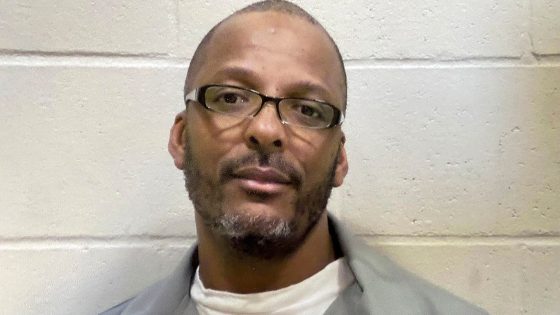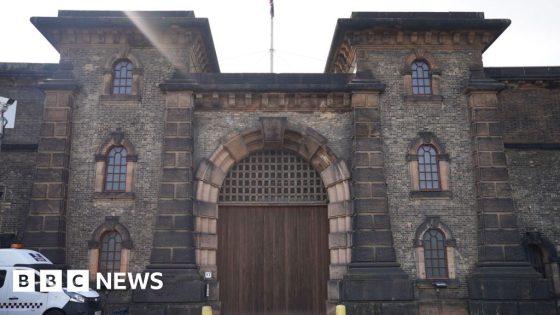Christopher Dunn has spent 33 years in prison for a murder he has claimed from the outset that he didn’t commit. A hearing this week will determine if he should go free.
St. Louis prosecutors are now convinced Dunn is telling the truth, but lawyers for the Missouri Attorney General’s Office want him kept behind bars. Dunn, 52, is serving life without parole at the state prison in Locking, Missouri. He wore a gray suit at the hearing Tuesday before Judge Jason Sengheiser.
A Missouri law adopted in 2021 allows prosecutors to request such hearings when they see evidence of a wrongful conviction. St. Louis Circuit Attorney Gabe Gore filed a motion in February seeking to vacate the 1990 guilty verdict, citing “clear and convincing evidence of Christopher Dunn’s actual innocence.”
MISSOURI MAN ADMITS TO STRANGLING HOSPITALIZED WIFE TO DEATH BECAUSE HE COULDN’T AFFORD HER MEDICAL BILLS
Dunn was convicted of first-degree murder in the death of 15-year-old Ricco Rogers based largely on the testimony of two boys who said they witnessed the shooting. They were 12 and 14 at the time, and later recanted, claiming they were coerced by police and prosecutors.
Booker Shaw, a private attorney working on behalf of the circuit attorney, said Tuesday in his opening statement that Dunn was at his mother’s house a few blocks away at the time of the shooting, watching TV with his mother and sister.
Assistant Attorney General Tristin Estep said neither police nor prosecutors coerced the witnesses to testify against Dunn, and evidence will show he was the shooter regardless of how their stories have changed.
“Over the past 34 years, Christopher Dunn has crafted a story, but not a convincing one,” Estep said.
This photo provided by Kira Dunn shows Christopher Dunn. (Kira Dunn via AP)
In May 2023, then-St. Louis Circuit Attorney Kim Gardner filed a motion to vacate Dunn’s sentence. But Gardner resigned days later, and after his appointment by Gov. Mike Parson, Gore wanted to conduct his own investigation. Gore announced in February that he would seek to overturn the conviction.
Dunn, who is Black, was 18 when Rogers was shot to death on the night of May 18, 1990. No physical evidence linked Dunn to the crime but the two boys told police at the time that they saw Dunn standing in the gangway of the house next door, just minutes before shots rang out.
Rogers and the two boys ran when they heard the shots, but Rogers was fatally struck, according to court records.
A judge has heard Dunn’s innocence case before.
At an evidentiary hearing in 2020, Judge William Hickle agreed that a jury would likely find Dunn not guilty based on new evidence. But Hickle declined to exonerate Dunn then, citing a 2016 Missouri Supreme Court ruling that only death row inmates — not those like Dunn sentenced to life in prison without the possibility of parole — could make a “freestanding” claim of actual innocence.
The 2021 law has resulted in the release of two men who each spent decades in prison.
In 2021, Kevin Strickland was freed after more than 40 years for three killings in Kansas City after a judge ruled he had been wrongfully convicted in 1979.
Last February, a St. Louis judge overturned the conviction of Lamar Johnson, who served nearly 28 years for a killing he always said he didn’t commit. In that case, another man testified that it was he — not Johnson — who joined a second man in the killing, a witness said police had “bullied” him into implicating Johnson, and Johnson’s girlfriend at the time testified they were together that night.
Still waiting for a hearing is a man who was nearly executed for a murder conviction.
CLICK HERE TO GET THE FOX NEWS APP
St. Louis County Prosecuting Attorney Wesley Bell filed a motion in January to vacate the conviction of Marcellus Williams, who narrowly escaped lethal injection seven years ago for the fatal stabbing of Lisha Gayle in 1998. Bell’s motion said three experts have determined that Williams’ DNA was not on the handle of the butcher knife used in the killing
Source Agencies



